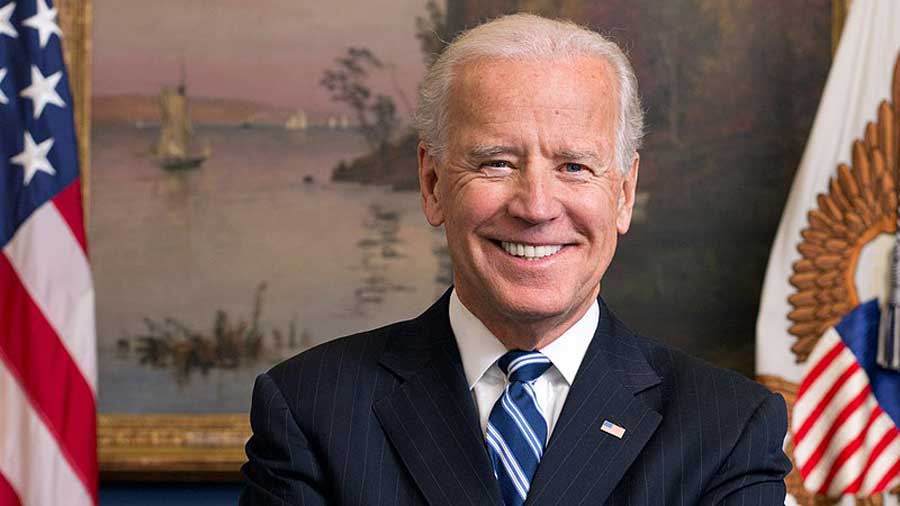China on Sunday asserted that the days when a “small” group of countries decided the fate of the world are long gone, hitting back at the leaders of the powerful G-7 bloc who took a unified position on Beijing on issues like the Covid-19 origins, human rights violations and its mega Belt and Road Initiative.
As the leaders of G-7 — Canada, France, Germany, Italy, Japan, the United Kingdom and the United States — met in Cornwall in England where US President Joe Biden made a strong bid to rally the allies against China's growing economic clout, human rights besides its reluctance to agree for a probe into the Covid-19 origin, Beijing appeared defiant and firm, questioning the relevance of the bloc.
Sunday's call for a new study on the origins of Covid-19 came weeks after Biden said he had directed the US intelligence community to redouble their efforts in investigating the origins of the pandemic and report to him in 90 days.
Biden's announcement came after a US intelligence report found several researchers at central China's Wuhan Institute of Virology had fallen ill in November 2019 and had to be hospitalised. This new detail has led to fresh public pressure on Biden to probe deeper into the origin of the deadly virus that has wrecked the global economy and killed over 3,797,000 people globally, including more than 599,600 people in the US.
While there is no direct response by the Chinese government here in Beijing, state-run Global Times quoted statement issued by China's Embassy in London, rebutting G-7 criticism against Beijing.
Answering a question on issues covered by the G-7 Summit on pandemic response, economy, trade and global supply chains and US efforts to seizing the opportunity to bond with other Western countries to safeguard the rules-based international system , the Chinese embassy statement said there is only one system, the international system, which is led by the UN.
"We always believe that countries, big or small, strong or weak, poor or rich, are equals, and that world affairs should be handled through consultation by all countries," it said.
"The days when global decisions were dictated by a small group of countries are long gone," it said.
"There is only one system and one order in the world, that is, the international system with the United Nations at the core and the international order based on international law, not the so-called system and order advocated by a handful of countries," it added.
To another question that an announcement will be made at the G7 summit on the provision of one billion doses of Covid-19 vaccine to countries in need, the statement listed about what China has done including providing free vaccines to more than 80 developing countries exporting vaccines to 43 countries.
"We have delivered 350 million doses to global partners, more than any other country in the world," it said.
"China is fully implementing the G20 Debt Service Suspension Initiative for Poorest Countries and has so far deferred repayment of more than USD 1.3 billion worth of debt. This is the highest deferral amount among the G20 members, it said.
While Biden's efforts making headway to forge a consensus with other G-7 and EU countries came as a surprise to China, analysts here cautioned Beijing about the US successfully pushing its Build Back Better World (B3W) plan to counter Beijing's multibillion dollar Belt and Road Initiative (BRI).
The BRI, a multi-billion-dollar initiative launched by Chinese President Xi Jinping when he came to power in 2013, aims to link Southeast Asia, Central Asia, the Gulf region, Africa and Europe with a network of land and sea route.
Commenting on the B3W, Shi Yinhong, a US relations specialist at Beijing's Renmin University, said that the US plan was "not good news for China".
"All of the stated goals of the B3W, described as a values-driven, transparent and sustainable infrastructure partnership, are obviously targeting China," Shi told the Hong Kong-based South China Morning Post on Sunday.
The plan's unveiling comes as the Biden administration reviews its China policy and steps up its alliance-based strategy to push back against China's diplomatic and military assertiveness and alleged abuses over Xinjiang and Hong Kong.
It also comes as the US economy bounces back from recession, with the United States and Britain making big gains in controlling the pandemic, the Post report said.
Shi said the infrastructure plan and the US efforts to unite allies to confront China were the basis of the emerging Biden doctrine, which was essentially about winning the competition with China and showcasing the superiority of the democratic system.
While it remained to be seen how the major Western powers would frame the threats from China, the divisions between Washington and its allies should not be overstated, said Pang Zhongying, an international affairs expert at the Ocean University of China.
"This year's G-7 summit is of particular importance to Western democracies because it is happening at a critical time when they have to work together to address the China challenge in the middle of an arduous campaign to seek economic recovery and overcome the coronavirus crisis, he said.
Pang said Beijing should refrain from jumping to hasty conclusions that everything at the summit was about containing China.
"It is true that the US-led efforts will pose challenges to China, but it is equally important for Beijing to continue its efforts to improve ties with some of the US allies to avoid slipping into a new Cold War," Pang said.











